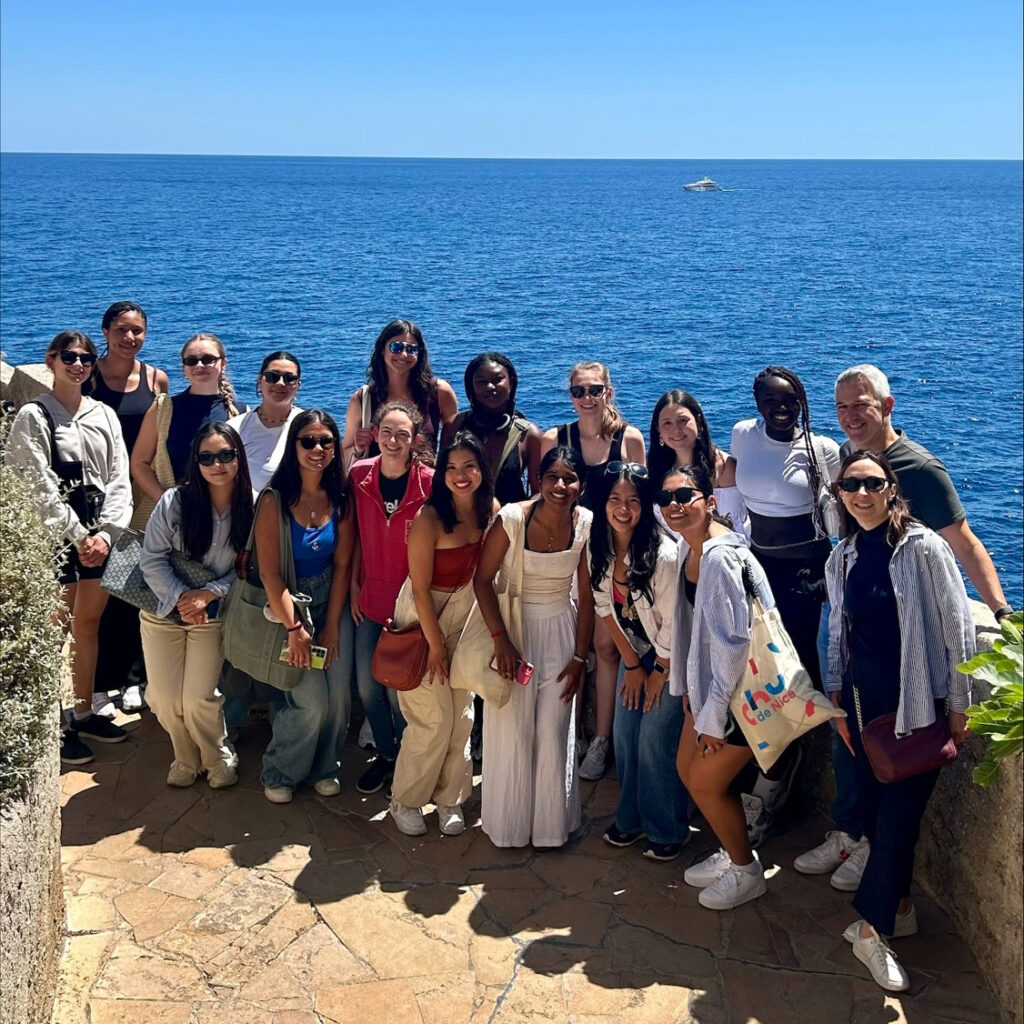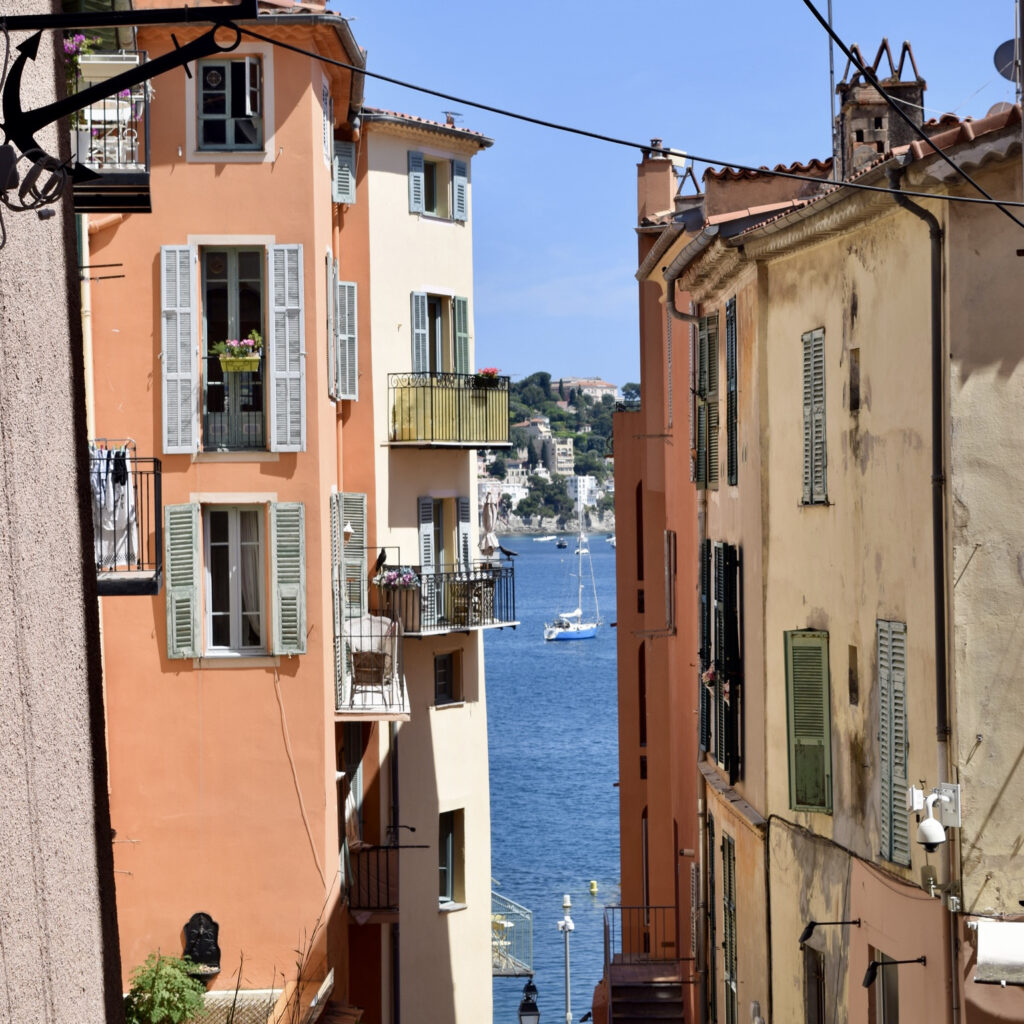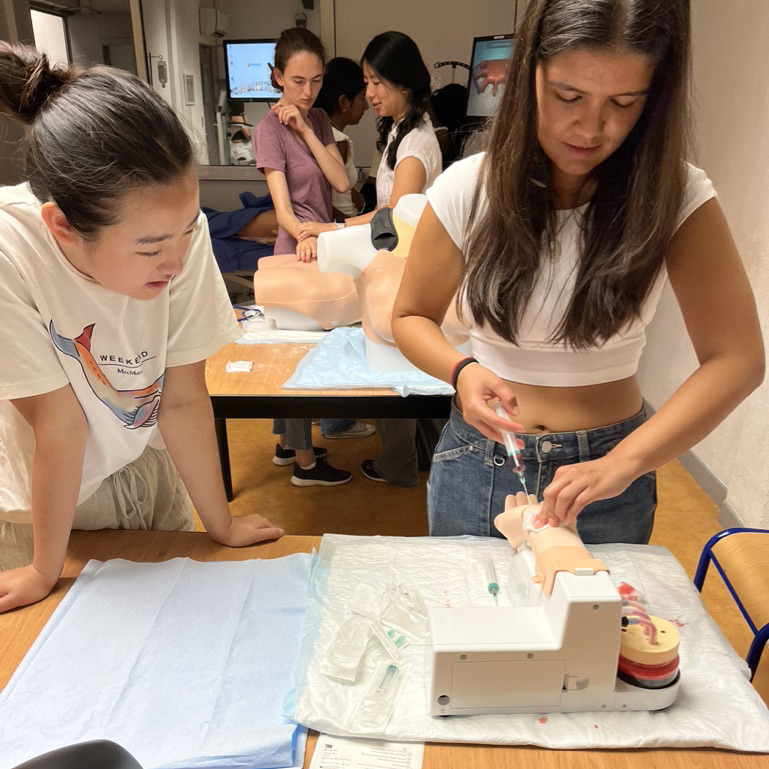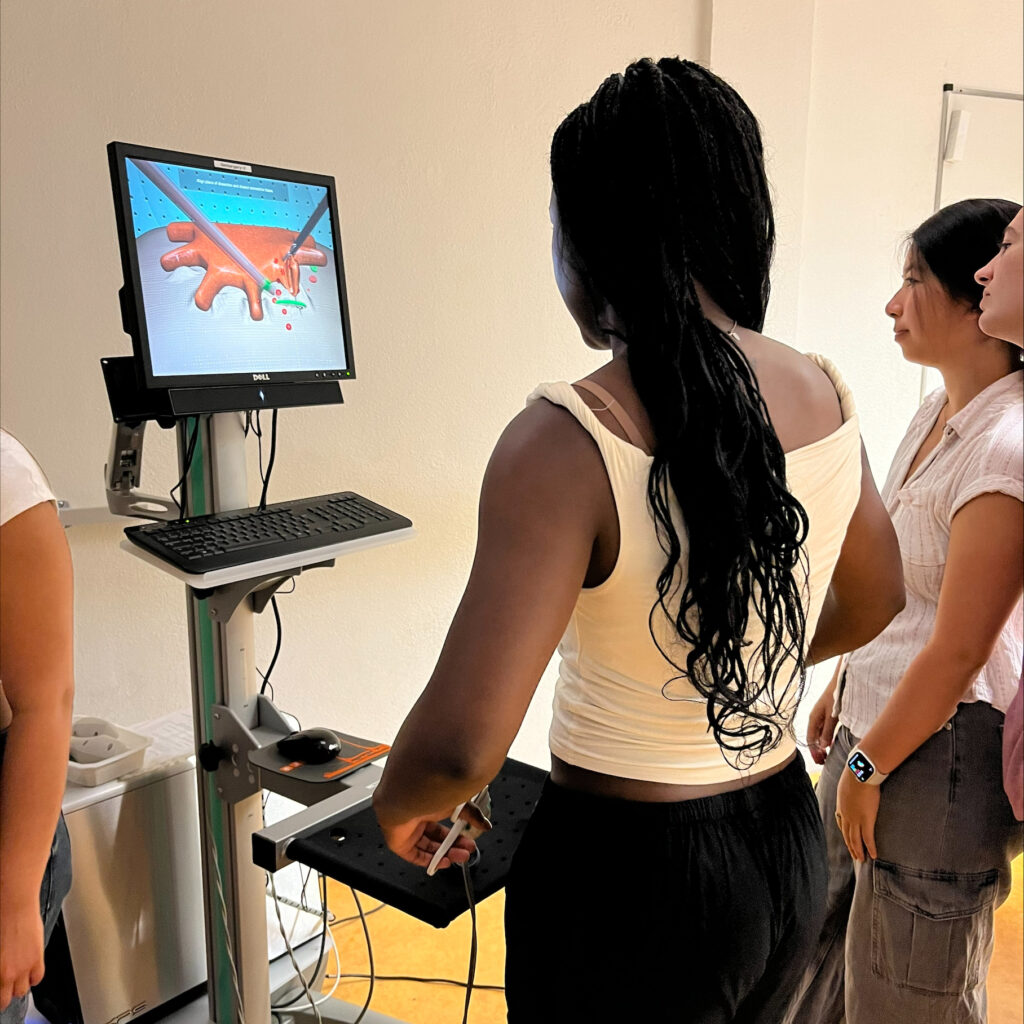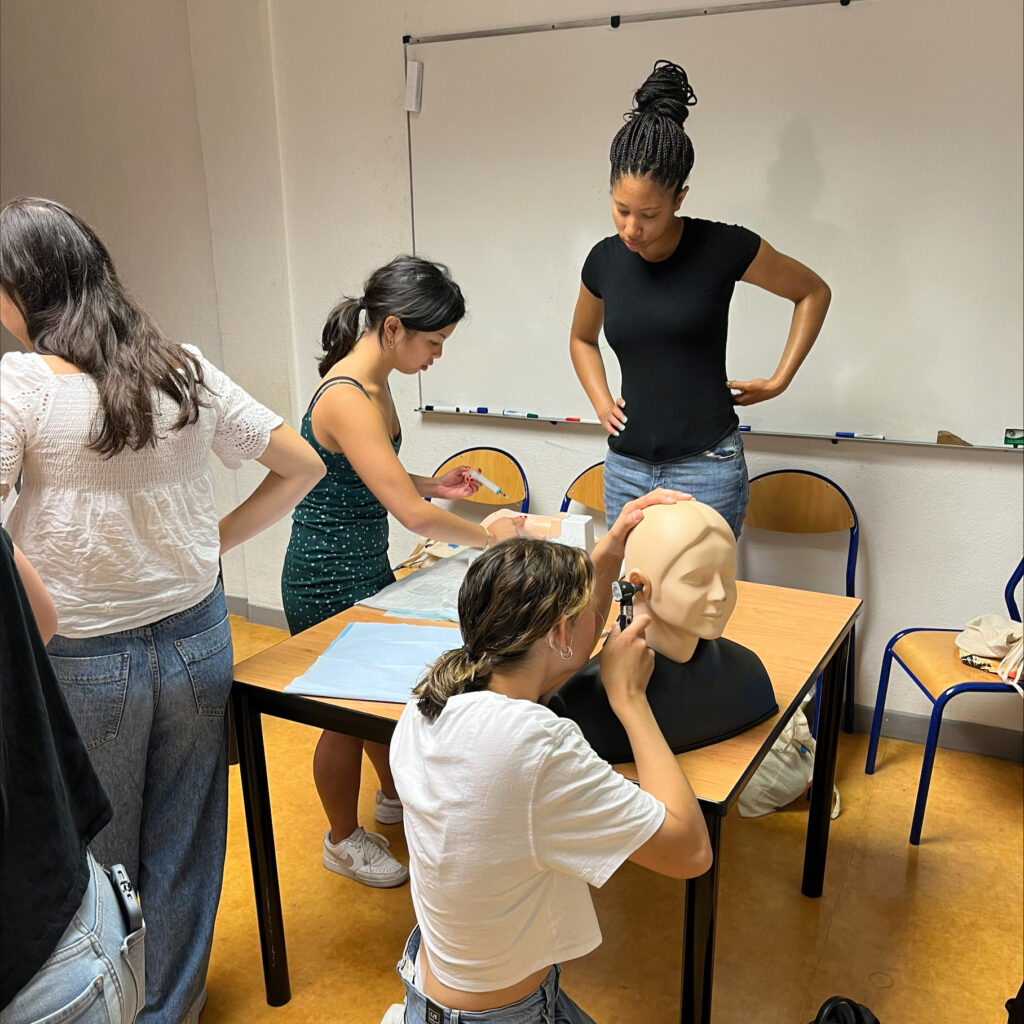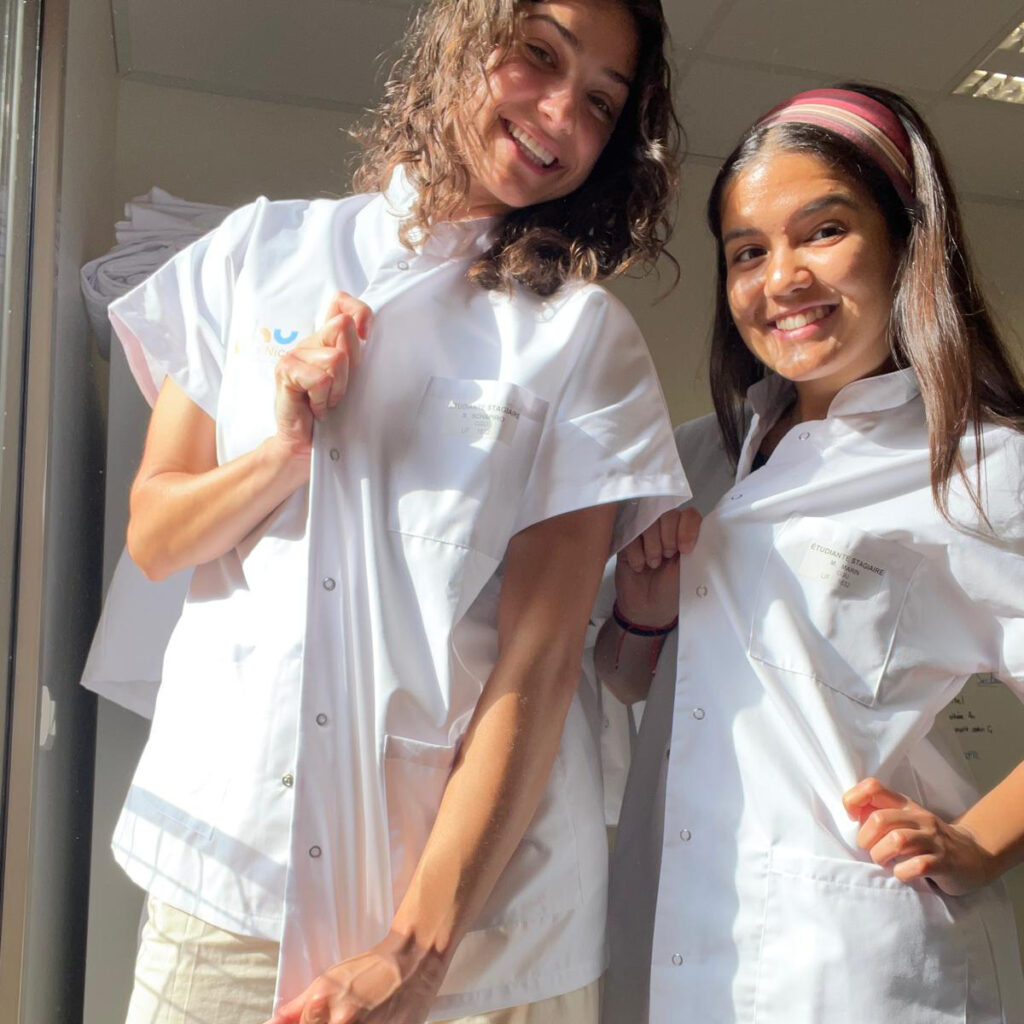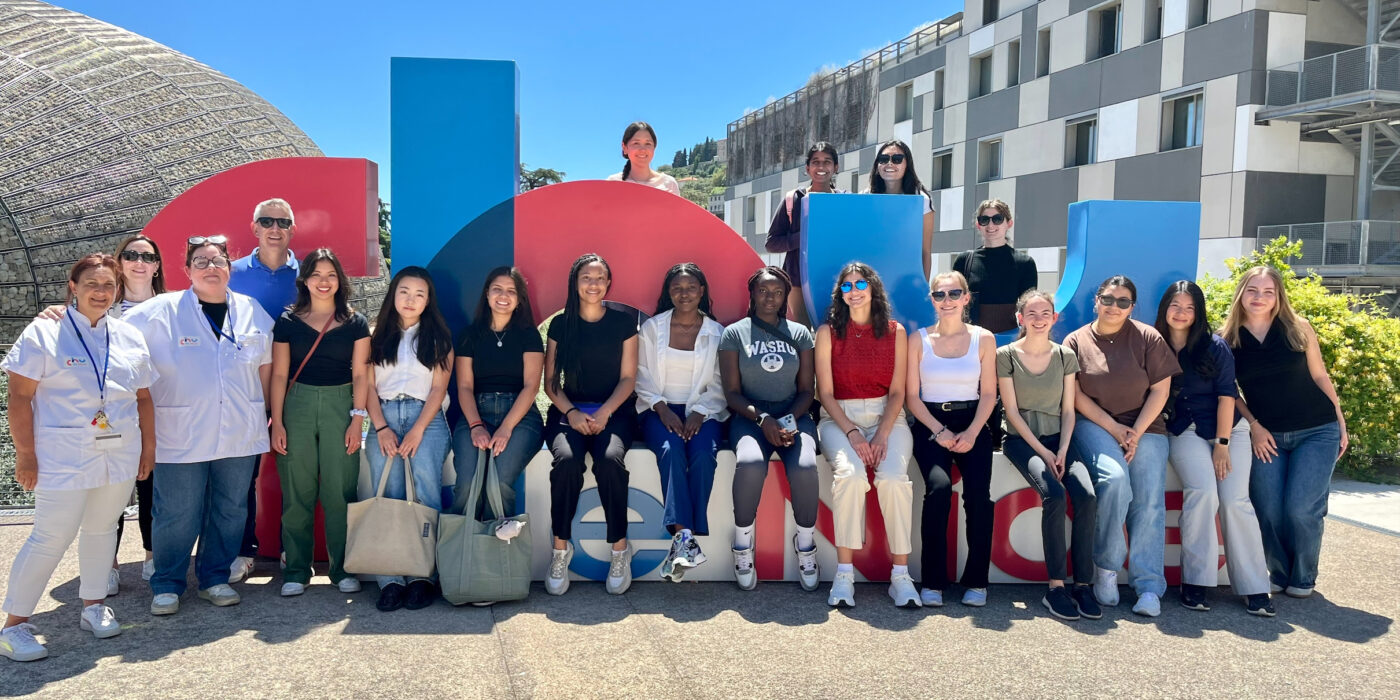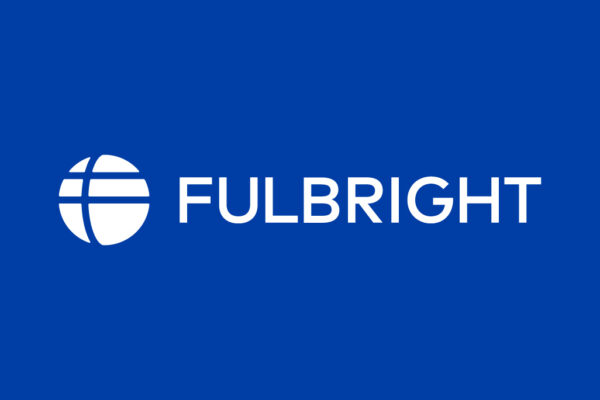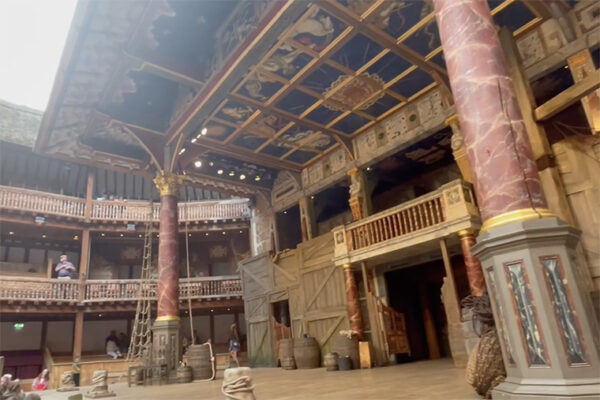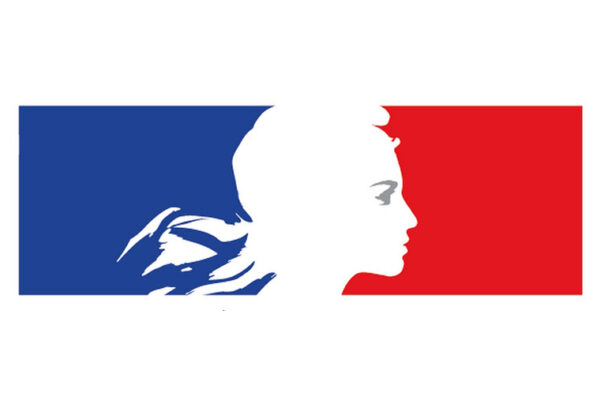France has one of the best health-care systems in the world. The country’s fifth-largest city, Nice — in the south of France — is considered by many as an inspirational location for health, healing and wellness. The region has long beckoned tourists, artists and writers with its cosmopolitan coastal location and vibrant landscapes.
And this summer, it beckoned undergraduate students from WashU, who traveled to France to study “The Art of Health in Nice” and complete an internship at a public hospital. The WashU Healthcare in France program — part of the French for Medical Professionals track in Arts & Sciences — was started 30 years ago by Colette Winn, professor emerita of French in Arts & Sciences, and following a hiatus during the pandemic, is now running again.
“The internship at Hôpital Pasteur is the cornerstone of the program,” says Kat Haklin, the director of the WashU Healthcare in France program and a lecturer in French in Arts & Sciences. “Being completely immersed in French language and culture, students can make considerable ground on the French major or minor in just five weeks in Nice. They also gain important pre-professional experience observing the inner workings of Hôpital Pasteur.”
Participating students receive three credits for each of the two courses they take over the summer — the hospital internship and the interdisciplinary cultural course — which amounts to the same number of credits as two standard semester-long classes. French 321, an advanced grammar and stylistics course, is a prerequisite, and all the instruction is offered only in French. (This summer, Haklin and her co-instructor, Vincent Jouane, a senior lecturer in French in Arts & Sciences, received a $35,000 grant from study abroad provider IES Abroad to support the program in Nice.)
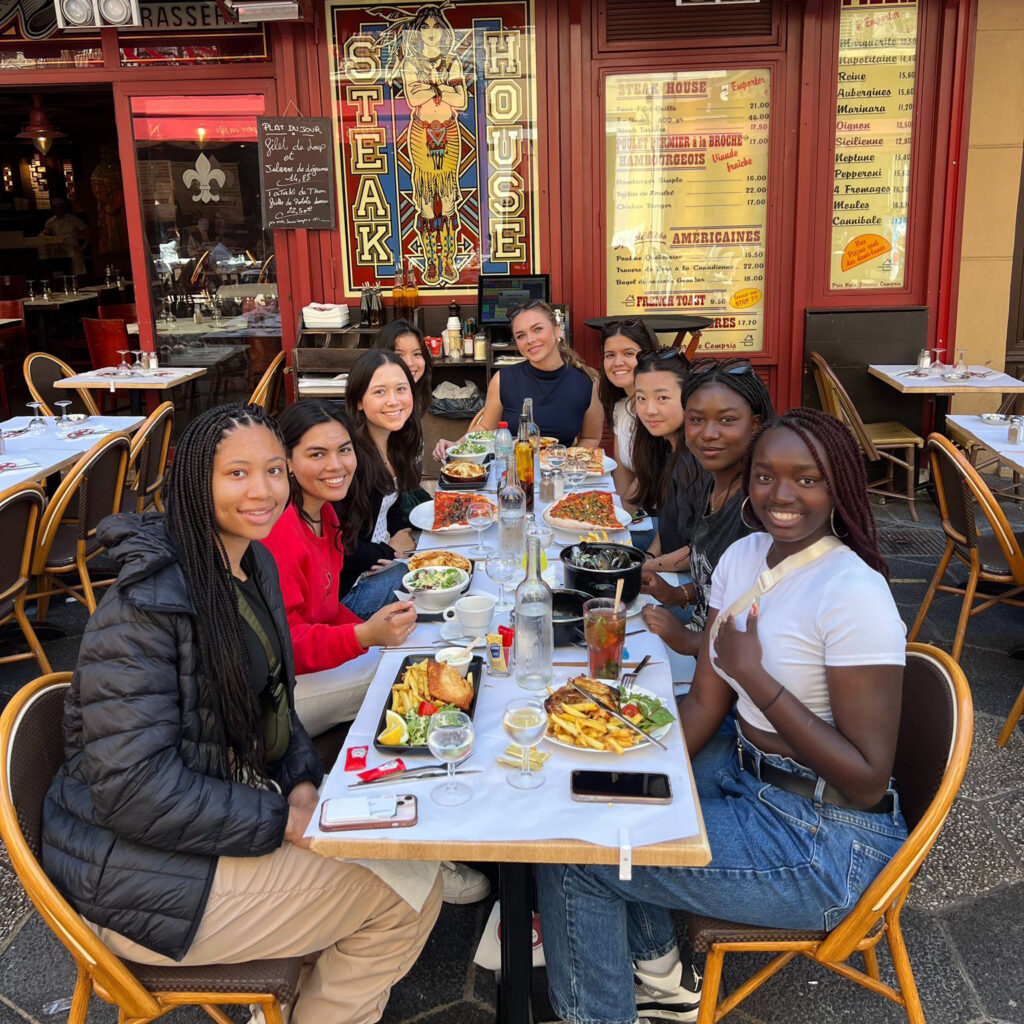
Amsatou Mbacke, a senior at WashU, participated in the program in Nice. “I’m majoring in biology, and I’ve also worked in a hospital in Senegal, which is a French-speaking country,” says Mbacke, who is also majoring in African American studies with a minor in French, all in Arts & Sciences. “In the future, I want to go back to Senegal and contribute to that hospital and the economy there. For me to do that, I need to have a solid basis in French.”
Mbacke, who has completed research on sickle cell anemia and diabetes while at WashU, grew up in south St. Louis, but her family is from Senegal.
“I already understood French pretty well because of my parents, but when it comes to actually learning it, that was a whole different experience,” says Mbacke, who didn’t take her first French class at WashU until she was a sophomore.
Haklin encouraged Mbacke to stick with her language studies. “She said to me, ‘You’re having fun with this. It seems like you love writing. You should minor in French.’” Mbacke recalls, laughing. “And I thought, wait, maybe I should!”
Mbacke qualified to participate in WashU’s Summer Language Institute in Paris in 2023, which is focused on language proficiency and cultural understanding. After that, she set her sights on the Nice program, with its internship at Hôpital Pasteur. The 640-bed public hospital is part of the Nice University Hospital Center, the leading health-care facility in the Alpes-Maritimes area of France.
“I’ve worked in a hospital before, so I’ve seen doctors in action,” Mbacke says. “But France is diverse, and there are so many different cultures. Seeing how the doctors worked with immigrants and with people from different backgrounds was fascinating.”
All residents of France have access to medical care through the country’s socialized medicine regime. Every person — including the homeless patients who Mbacke saw admitted in the emergency room, where she did her internship — can receive treatment.
“We would take them in and give them surgery, if they needed it,” she says. “They got the full care they deserve.”
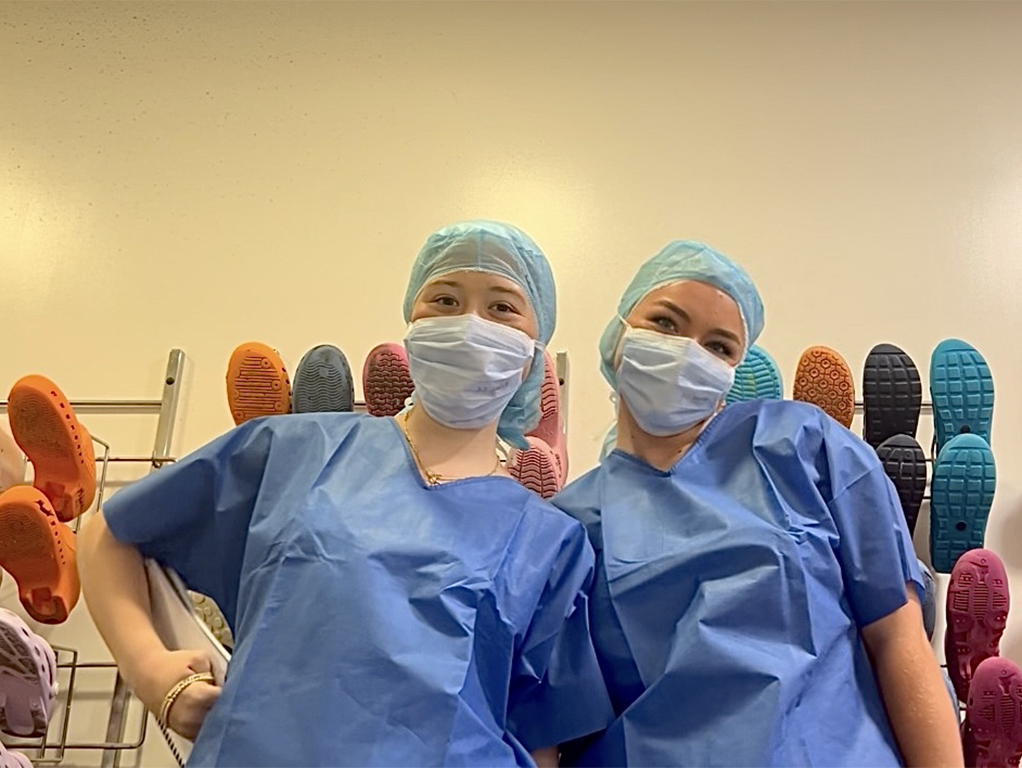
Anna Johnson, another native of St. Louis, had a lot more formal experience with French language education than Mbacke before she came to WashU. She had previously participated in a month-long French exchange program to Nantes, France, and completed AP French while she was still in high school. For Johnson, the opportunity to study French for medical professionals is part of why she chose to apply to WashU. “I could gain clinical experience, while also improving my French,” she says.
Because Nice is a desirable location for tourists from around the world, Johnson and other WashU students sometimes found themselves during their internship leaning on other language proficiencies besides French in the hospital setting.
“I also speak Russian, and there were plenty of Russian-speaking patients that would come in,” Johnson says. She recalls one instance when a father asked for her help with his injured son.
The man spoke Russian and French, but his son spoke only Russian. “The man said, ‘If I step out of the room for a minute, can you translate for him?’” Johnson says. She listened to the doctors speaking in French and was able to explain to the boy in Russian that he needed an X-ray and a CT scan. She helped put the whole family at ease.
“It was rewarding to see the patient’s eyes light up when he realized I could help by speaking their language,” Johnson says. “Embracing language skills — and, more importantly, cultural awareness — is essential for any doctor, and it’s something I strive to bring as a future physician. This is an experience I will cherish forever, as it’s something I could never have gained in the classroom.”
For her hospital internship, Johnson chose the specialty of plastic and reconstructive surgery, including hand trauma surgery. She observed patient interactions during consultations, as well as elective and non-elective plastic and hand trauma surgeries.
Johnson wrote her final research paper for the program about the history, cultural connections to and medical risks of tanning in the south of France. Mild climate and turquoise seas made the Côte d’Azur famous, and it’s hard to avoid exposure when the region gets around 300 days of sunshine each year.
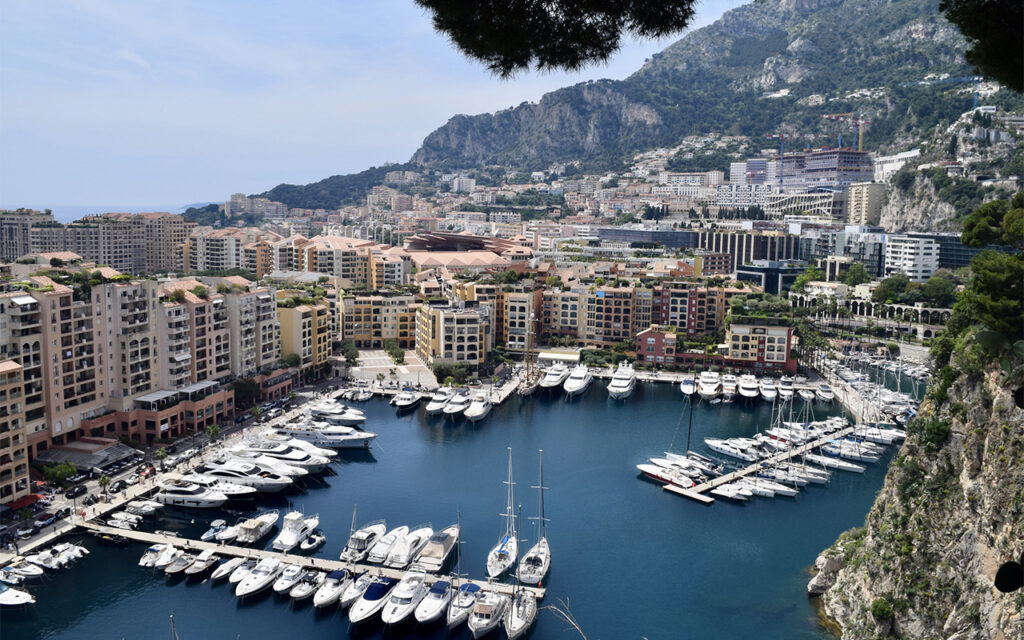
“We saw many patients — who were as young as I am, like 20 years old — in our specialty who had melanoma,” Johnson says. “I got to see firsthand how important it is to wear sunscreen outside.”
After mornings spent in the hospital, the WashU students spent afternoons in a class that examined various French and francophone art forms, including the visual, literary and culinary arts, as experienced through the lens of human well-being. They made academic excursions to world-class destinations across the south of France, visiting gardens, markets, museums and villas and studying works by Colette, Cousteau, Matisse, Van Gogh and others.
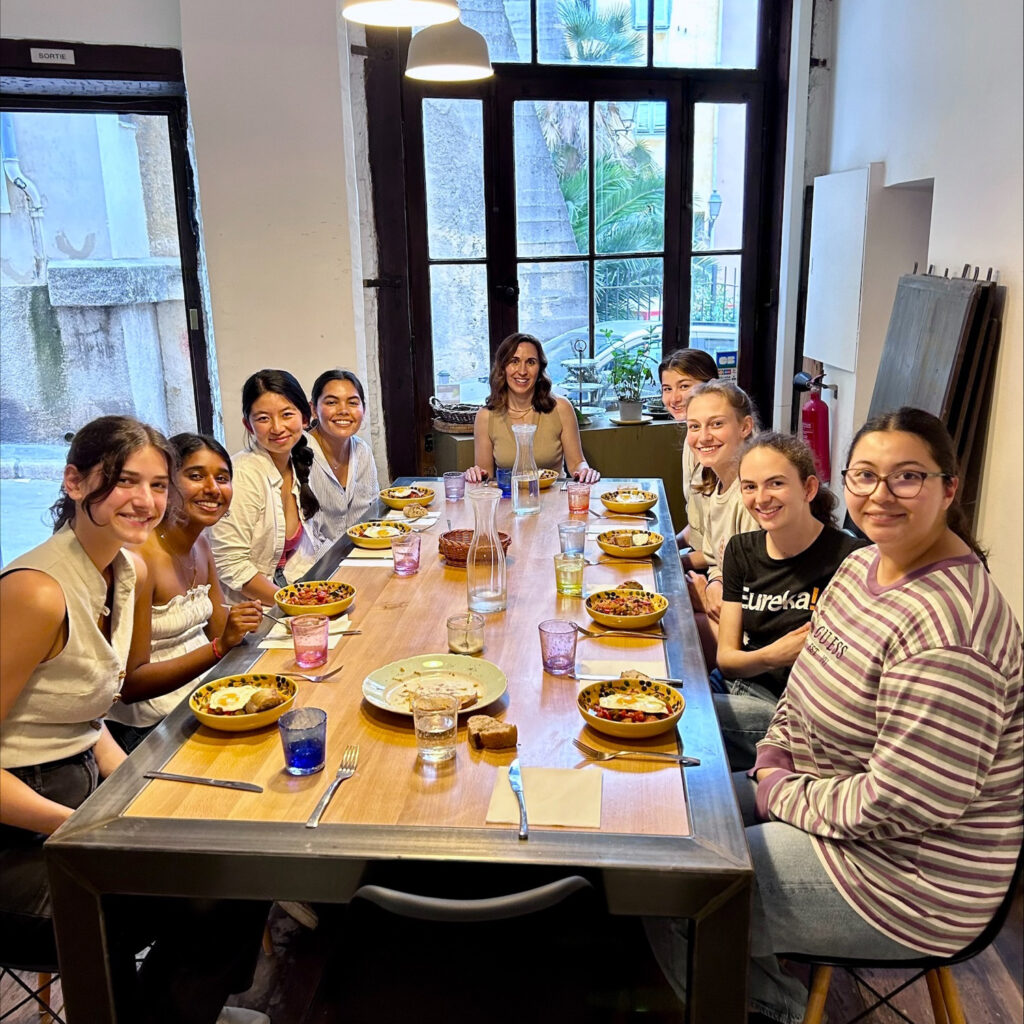
“One of the things I loved the most was how accessible the city was without a car,” says Estephanie Estrada, a senior who is majoring in psychological and brain sciences and minoring in French in Arts & Sciences. “I loved where we were living in Nice because it was close to the hospital. It was a very central location, so I was able to walk to the beach often.”
Estrada also enjoyed the food and the opportunities for outdoor dining and live music. “Anytime I walked outside after 5 p.m., I heard music everywhere. As a musician myself, I found this to be a really wonderful part of my experience,” she says.
Estrada worked in nephrology for her hospital internship. Her interest in kidney medicine was informed by personal experience: She had endured and recovered from a double kidney infection in 2023. She also had recently taken an anthropology class on biomedical ethics that focused on the ethics of organ transplantation. This combination helped prepare her for a fateful moment at Hôpital Pasteur.
“When we received a call that a kidney was available in a different part of France, and they were explaining how the waitlist works, I could see that it works very similar to the way it works in the U.S.,” she says. “I knew why it was so important and why everything else for the day got pushed to the side because we had to focus on the available kidney.
“It was really helpful,” Estrada continues, “because even though I might have gotten lost in the French and the medical terminology at times, for the most part I knew what was going on. Whenever there were exciting or stressful things happening in the hospital, I understood what was happening.”
Estrada, who is originally from St. Louis, also speaks Spanish. And she offers one main piece of advice for students who are considering the WashU Healthcare in France program: to enter it with an open mind for the experiences they will have in Nice and in their hospital specialty.
“This summer I felt like I was able to make connections with some wonderful people and make friendships that I hope will continue,” she says. “Nice is a touristy town, but there’s also a lot of beauty within the local culture, especially with the people you meet.”
